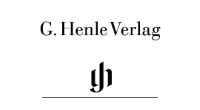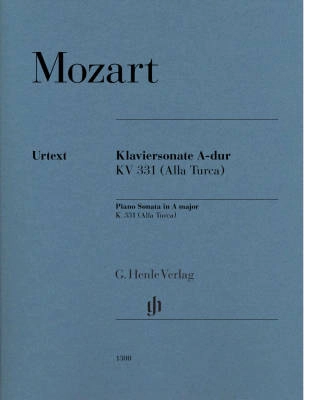Opens in a new window
G. Henle Verlag Piano Sonata A major K. 331 (300i) (with Alla Turca) - Mozart - Piano - Sheet Music
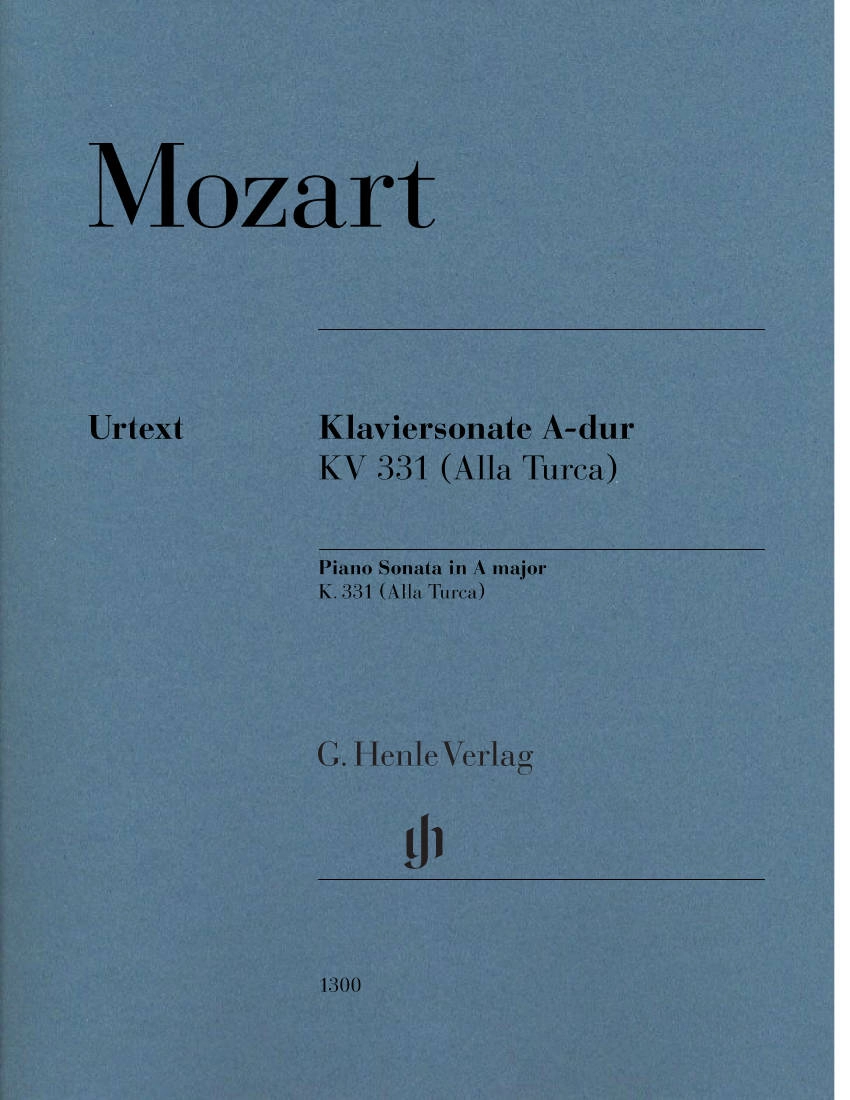
Additional Photos:
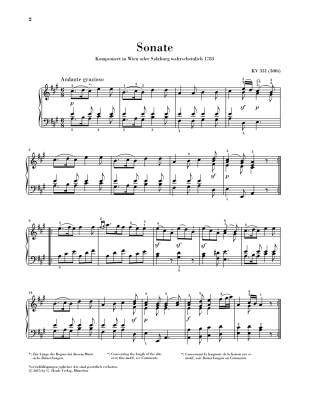
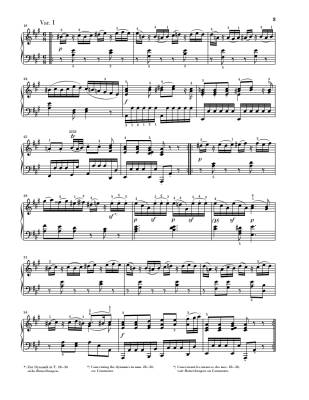
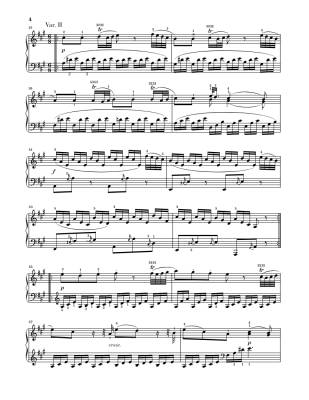
- Composer/Author: MOZART, WOLFGANG AMADEUS
- Instrumentation: PIANO
- Model # 51481300
Composer: Wolfgang Amadeus Mozart
Editor: Wolf-Dieter Seiffert
Fingering: Markus Bellheim
Format: Sheet Music
Instrumentation: Piano
Level: 5-6, medium
A sensational finding provided the impetus for this new edition. In autumn 2014 a hitherto unknown Mozart autograph of the famous Piano Sonata in A major (with the enduring "Turkish March") surfaced in Budapest. After a painstaking study of the manuscript and a meticulous comparison with all of the other sources, G. Henle Publishers is now issuing the first definitive Urtext edition of significant parts of this masterpiece (the new autograph does not contain the complete sonata). It must be said that there are serious deviations from the musical text as we know it. So G. Henle Publishers are proud to be able to say that it is not possible to seriously study this sonata without consulting this Urtext edition.
"The A major Sonata has always been one of Mozart's best-loved works. It begins with an intimate and elegant theme and variations movement marked Andante grazioso. Thus this composition differs from a usual sonata, as it has not a single movement in sonata form but is more akin to the divertimento form. Yet even here the movements are bound together by strong melodic and formal affinities. It is no accident that the end of the variation theme is repeated note by note at the end of the minuet, that the crossing of hands in the trio of the minuet is anticipated in variation IV, that the key of the finale (A minor) is prefigured in variation III, and that the ritornello of this famous Turkish march finale in A major is alluded to in measures 5 and 6 of the allegro variation. The irregular phrase-structure of the minuet is typically Mozartian. The double octaves in measures 20 24 of the minuet trio make pianistic demands unusual for Mozarts time; this is the only occasion Mozart prescribes them in his piano sonatas. The delightful Rondo alla turca, with its limitation of Turkish music in the A major section, is justly famous. Here Mozart anticipated the Turkish pedal, an inbuilt percussion stop frequently found in Viennese pianos after 1800. An early fortepiano with a percussion stop is an ideal instrument for the interpretation of this sonata."
- Paul and Eva Badura-Skoda
Media
Sound Sample
Press play to listen
Q & A
There are currently no questions for this product.
Reviews
There are currently no reviews for this product. Be the first to write one!

